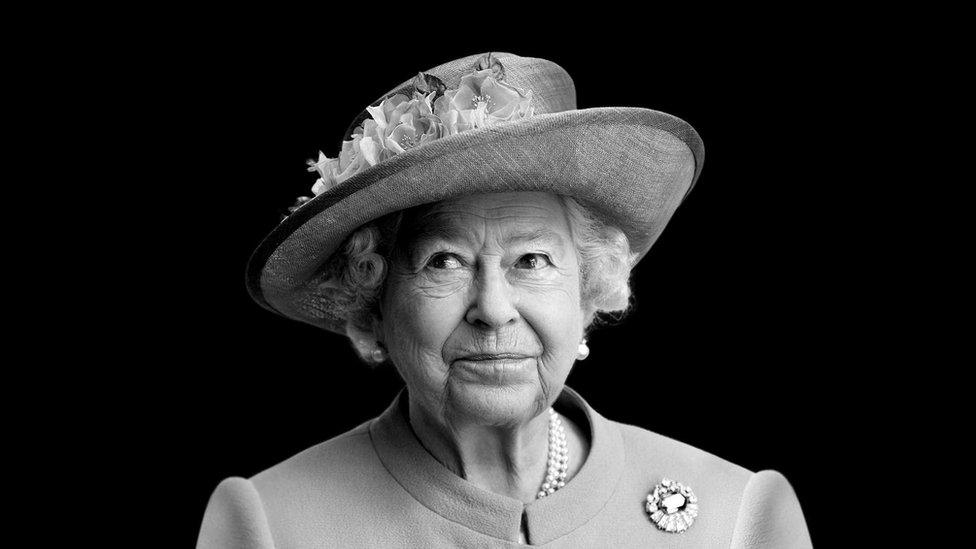Queen Elizabeth II's special connection with Windsor Castle
- Published
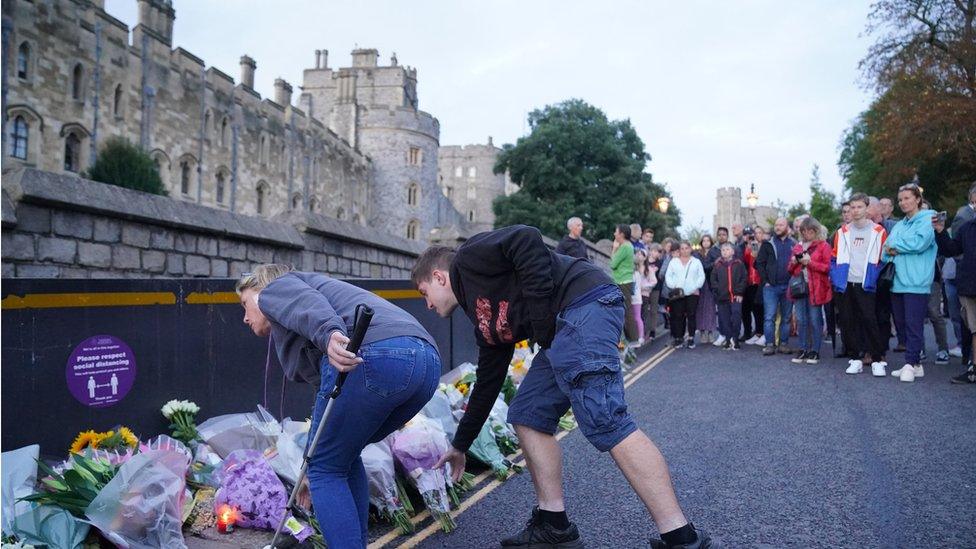
Mourners left flowers outside Windsor Castle following the Queen's death
The first instinct of many mourning the death of Queen Elizabeth II was to leave flowers at Windsor Castle. It was a building that had deep significance to the monarch throughout her life - a place of work but also her own private retreat.
The Queen's special association with Windsor Castle began when she was a child.
The then-Princess Elizabeth and her family made Royal Lodge - a mansion in the grounds of the Windsor Estate - their weekend country home.
They were a close-knit family and, throughout the 1930s and as her father ascended the throne and Europe descended into war, she and her sister enjoyed privacy and play there.
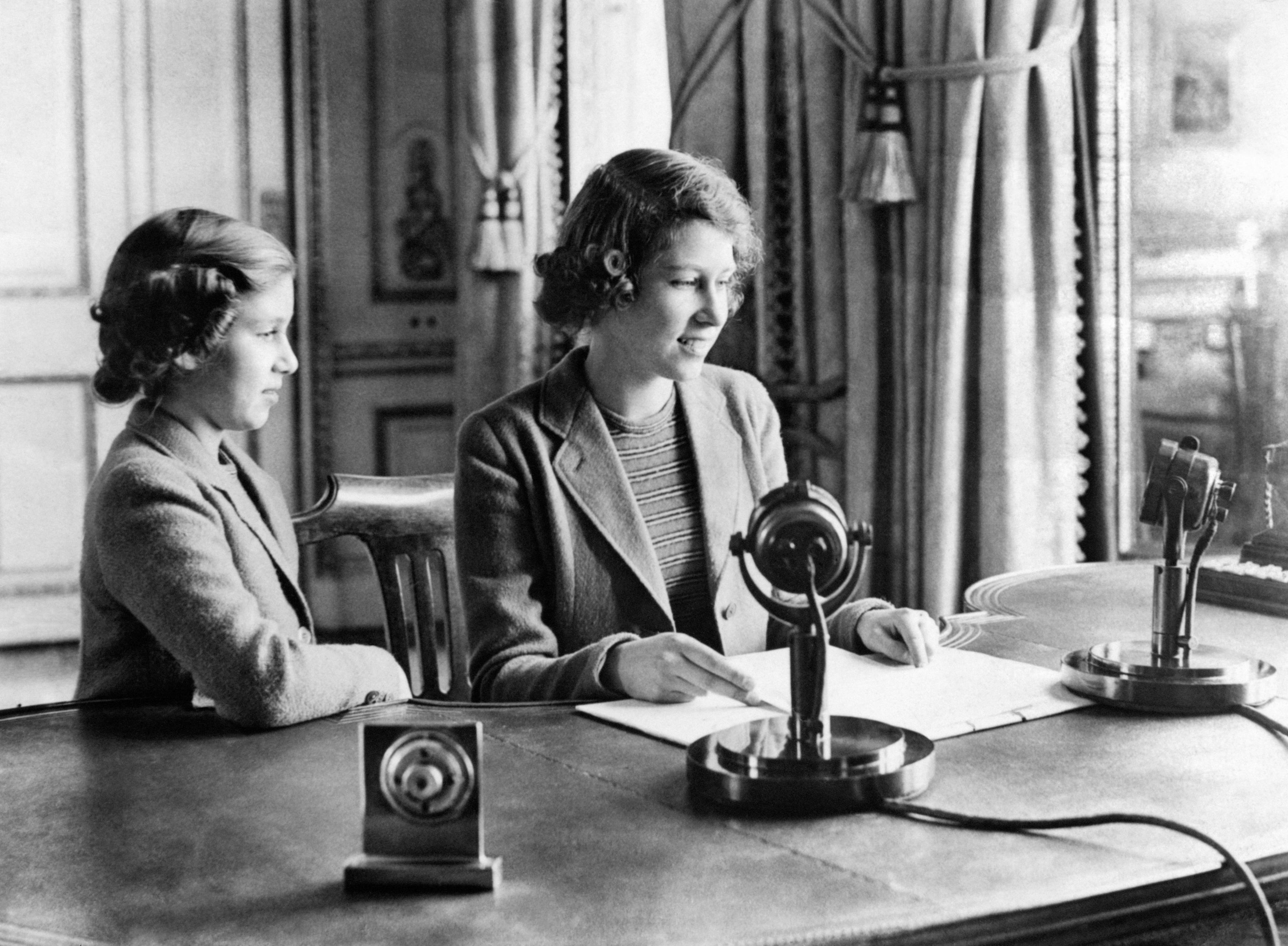
Princess Elizabeth broadcast to the nation from Windsor Castle following the outbreak of war
She was 14 when, along with Margaret, she was sent to the castle for much of World War Two while her home in London faced the threat of being bombed by Nazi Germany.
It was at this historic location and at that tender age that she spoke to her fellow young evacuees, urging them in a radio broadcast to find courage in the face of uncertain and troubling times.
The castle has been inhabited continuously by 40 monarchs across almost 1,000 years.
And just like those who had gone before her, the young Princess Elizabeth soon found it to be the setting both for undertaking some of her most challenging royal duties, as well as the place she enjoyed calling home.
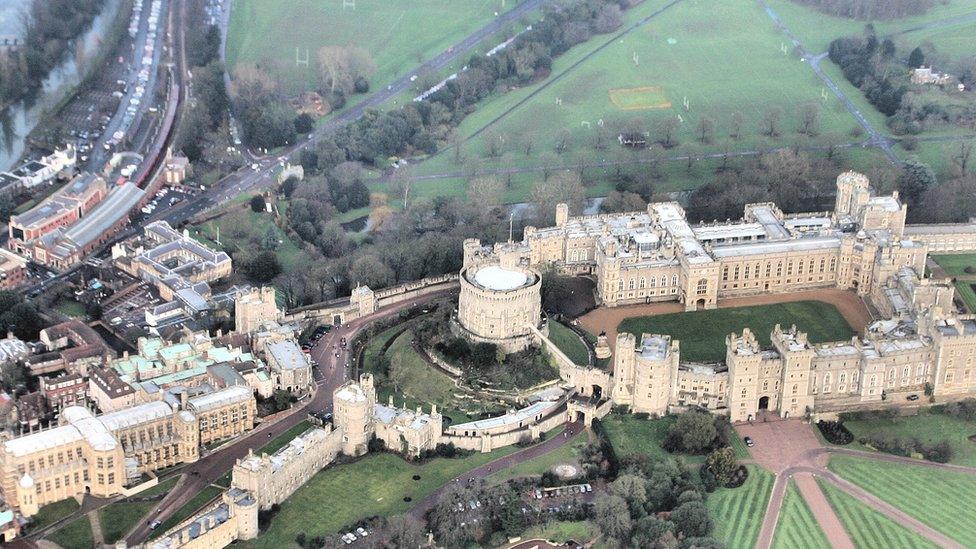
Windsor Castle boasts more than 1,000 rooms
On the morning of her 16th birthday, she carried out her first inspection of a military regiment during a parade in the grounds.
But away from her new work, it was a beloved home.
With 1,000 rooms, 13 acres (five hectares) of grounds and reminders of its rich history everywhere amid the gothic architecture, it is little wonder the Queen saw the castle as a sanctuary.
It also played host to overseas monarchs, presidents and prime ministers throughout her reign.
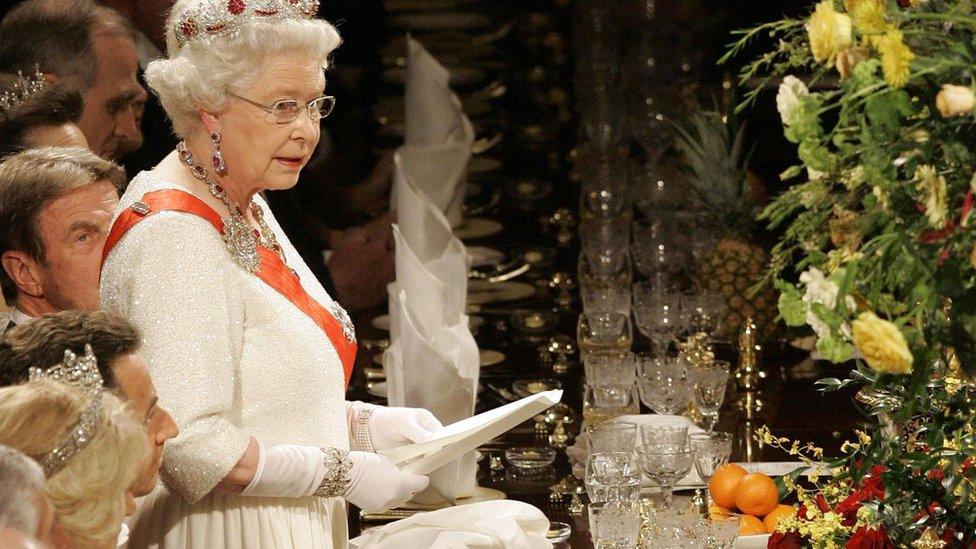
The Queen hosted lavish state banquets at Windsor Castle, as pictured here in 2008
They would typically enter in horse-drawn carriages through the George IV Gateway, later sitting at a 55.5m (182ft) grand table with space for 160 guests.
Windsor Castle's grandeur and its staff's dedication to maintaining the royal pomp and tradition made it world famous.
So it was a shock when smoke could be seen from miles around billowing from the fortress in November 1992.
The Queen, famed for her stoicism, was seen looking emotional as she watched on helplessly.
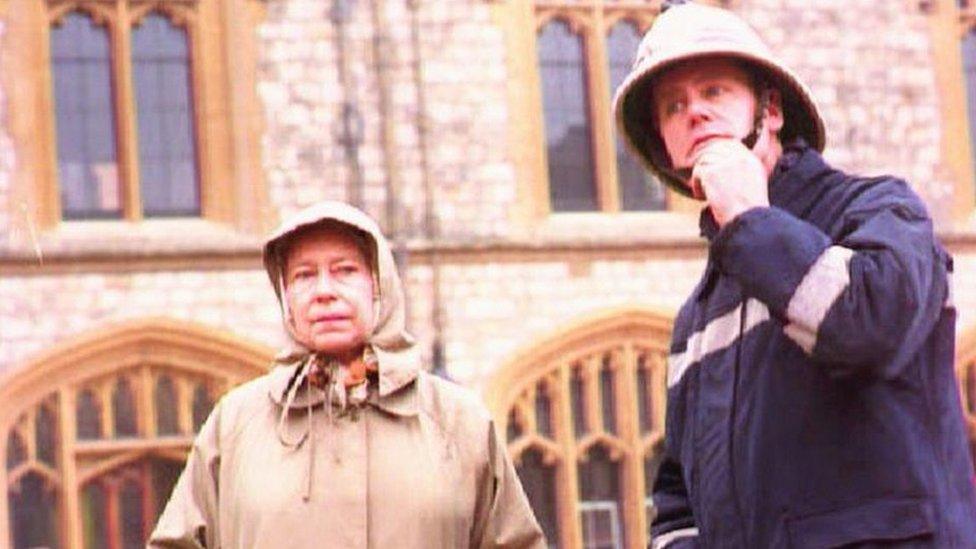
The Queen watched on helplessly as her home burned during a fire in 1992
It came after an unsettled year for the royals, with the Queen left upset by her children's various relationship and marriage problems, which had been widely reported in the media.
Weeks later, during a speech marking her Ruby Jubilee, she told her audience that 1992 was "not a year on which I shall look back with undiluted pleasure".
"In the words of one of my more sympathetic correspondents, it has turned out to be an annus horribilis," she said.
The Latin reference - meaning her "horrible year" - was a flash of candour and emotion the Queen rarely showed in public.
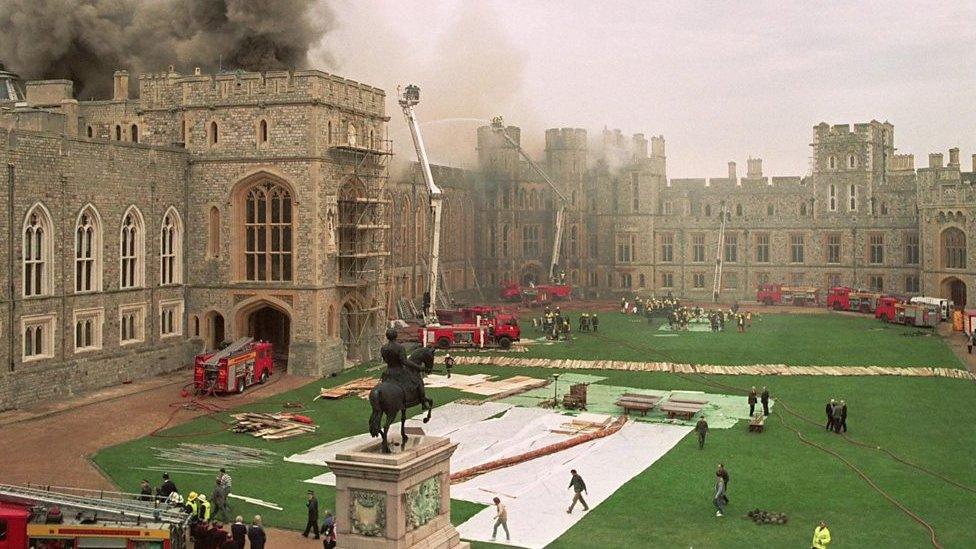
It took years to restore the castle to its former glory
The damage to the world's largest inhabited castle was extensive. It was years before it was fully returned to its former glory.
It did, however, continue to be a popular tourist attraction and, in 2011, the Queen decided to make the castle her main residence once again.
A building punctuated with history, but also a home that acted as the backdrop for much of an extraordinary life.
All pictures subject to copyright.


Follow BBC South on Facebook, external, Twitter, external, or Instagram, external. Send your story ideas to south.newsonline@bbc.co.uk, external.
- Published8 September 2022
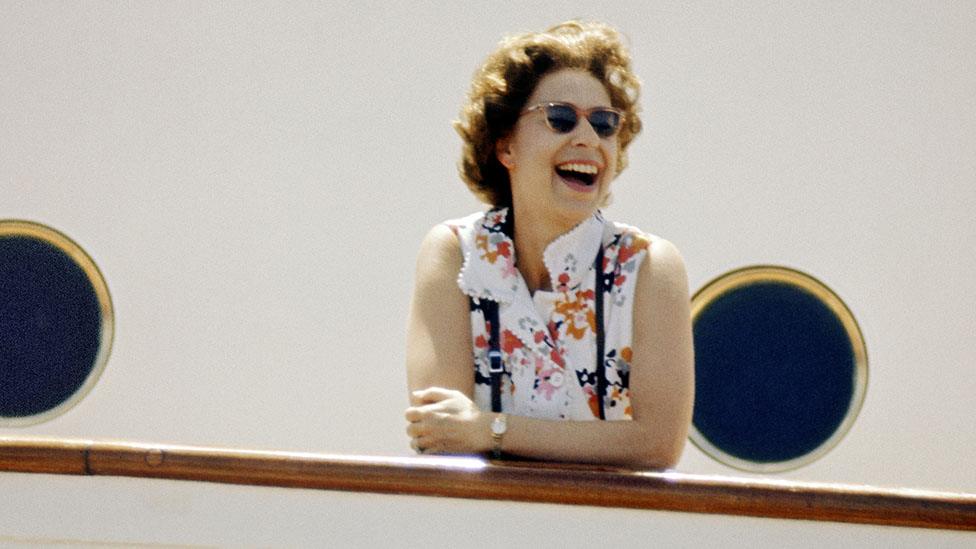
- Published8 September 2022
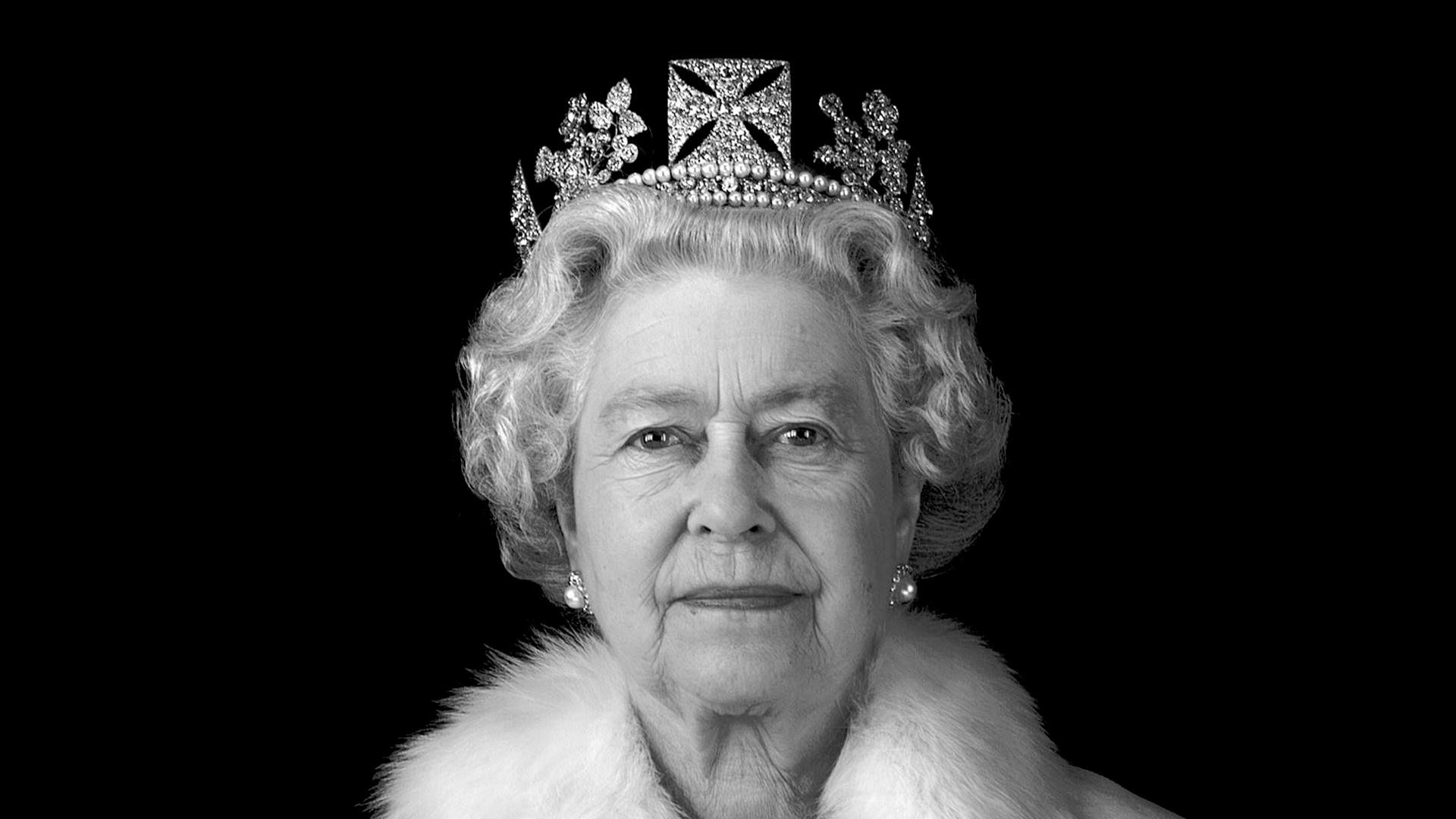
- Published8 September 2022
